Teen Life: What is Your Drug Fact IQ?
July 2024
20 Tips for Starting Conversations About Health and Wellbeing
 As your family prepares for a new school year, the Ask, Listen, Learn team wants you to feel prepared to have conversations about healthy behaviors with your kids. They offer tips on starting conversations with kids about health, wellbeing, and prevention education. Take time to review the helpful strategies for starting a safer, drug free school year.
As your family prepares for a new school year, the Ask, Listen, Learn team wants you to feel prepared to have conversations about healthy behaviors with your kids. They offer tips on starting conversations with kids about health, wellbeing, and prevention education. Take time to review the helpful strategies for starting a safer, drug free school year.
June 2024
Reduce Your Risks
 According to Partnership to End Addiction: “Every day, we engage in some form of harm reduction. We wash hands to minimize the risk of COVID-19, use seat belts when driving or wear helmets when playing sports. Similarly, there are steps one can take to reduce risks associated with substance use.”
According to Partnership to End Addiction: “Every day, we engage in some form of harm reduction. We wash hands to minimize the risk of COVID-19, use seat belts when driving or wear helmets when playing sports. Similarly, there are steps one can take to reduce risks associated with substance use.”
Reducing risks can result in:
- Fewer overdoses and associated deaths
- A decrease in the transmission of diseases like Hep C and HIV
- A way to connect individuals to overdose education, counseling, and referrals to treatment
- Less stigma associated with substance use and co-occurring disorders
- Lower overall healthcare costs
- A way to promote hope and healing
Read More Here: Harm Reduction Resource Center - Partnership to End Addiction (drugfree.org)
May 2024
Join us on Sesame Street
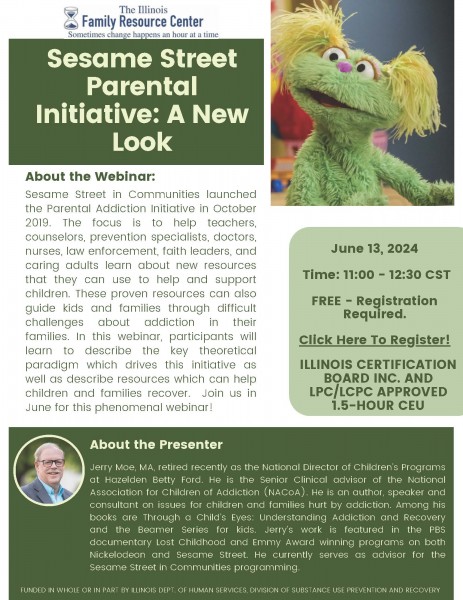 "Littles" often experience the impact of substance misuse in the home or with other close relationships. Sesame Street Workshop has been helping children since 2019 with understanding they are not alone and they can be okay. Jerry Moe has been involved with designing the content and developing materials to support the project. Jerry will deliver a webinar regarding this journey and share the tools with parents, professionals who are impacted by this issue. Join us in the process.
"Littles" often experience the impact of substance misuse in the home or with other close relationships. Sesame Street Workshop has been helping children since 2019 with understanding they are not alone and they can be okay. Jerry Moe has been involved with designing the content and developing materials to support the project. Jerry will deliver a webinar regarding this journey and share the tools with parents, professionals who are impacted by this issue. Join us in the process.
May 2024
Children’s Mental Health Awareness Day
 Children’s Mental Health Day is May 9, 2024. For nearly 20 years, SAMHSA has recognized Children’s Mental Health Day to bring attention to the mental health needs of children and young people. Children and young people country are experiencing an unparalleled mental health crisis; there has been a continued rise in the number diagnosed with anxiety, depression and other mental health conditions. An estimated one in five youth has a diagnosable mental, emotional, or behavioral disorder. However, many do not receive the help they need. These mental health challenges can significantly impact their ability to learn and develop. SAMHSA’s youth programs are focused on promoting wellness and the prevention, treatment, and recovery of mental health and substance use from early childhood to young adulthood.
Children’s Mental Health Day is May 9, 2024. For nearly 20 years, SAMHSA has recognized Children’s Mental Health Day to bring attention to the mental health needs of children and young people. Children and young people country are experiencing an unparalleled mental health crisis; there has been a continued rise in the number diagnosed with anxiety, depression and other mental health conditions. An estimated one in five youth has a diagnosable mental, emotional, or behavioral disorder. However, many do not receive the help they need. These mental health challenges can significantly impact their ability to learn and develop. SAMHSA’s youth programs are focused on promoting wellness and the prevention, treatment, and recovery of mental health and substance use from early childhood to young adulthood.
February 2024
National Drug and Alcohol Facts Week®
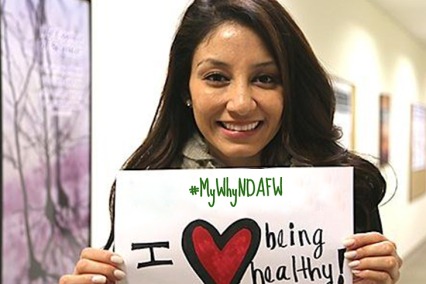 National Drug and Alcohol Facts Week®, or NDAFW, is an annual health observance that inspires dialogue about the science of drug use and addiction among youth. It provides an opportunity to bring together scientists, students, educators, healthcare providers, and community partners to help advance the science and address youth drug and alcohol use in communities and nationwide. It was launched in 2010 by scientists at the National Institute on Drug Abuse (NIDA) to stimulate educational events in communities so teens can learn what science has taught us about drug use and addiction. The National Institute on Alcohol Abuse and Alcoholism became a partner in 2016, and alcohol has been added as a topic area for the week. NIDA and NIAAA are part of the National Institutes of Health, and work with leading organizations, media outlets, and other Government agencies to spread the word about NDAFW. Mark your calendar for National Drug and Alcohol Facts Week, March 18–24, 2024. During National Drug and Alcohol Facts Week® and year round, teens can test their knowledge about drugs, alcohol, and drug use by taking the interactive National Drug and Alcohol IQ Challenge quiz. IFRC challenges you.
National Drug and Alcohol Facts Week®, or NDAFW, is an annual health observance that inspires dialogue about the science of drug use and addiction among youth. It provides an opportunity to bring together scientists, students, educators, healthcare providers, and community partners to help advance the science and address youth drug and alcohol use in communities and nationwide. It was launched in 2010 by scientists at the National Institute on Drug Abuse (NIDA) to stimulate educational events in communities so teens can learn what science has taught us about drug use and addiction. The National Institute on Alcohol Abuse and Alcoholism became a partner in 2016, and alcohol has been added as a topic area for the week. NIDA and NIAAA are part of the National Institutes of Health, and work with leading organizations, media outlets, and other Government agencies to spread the word about NDAFW. Mark your calendar for National Drug and Alcohol Facts Week, March 18–24, 2024. During National Drug and Alcohol Facts Week® and year round, teens can test their knowledge about drugs, alcohol, and drug use by taking the interactive National Drug and Alcohol IQ Challenge quiz. IFRC challenges you.
Check it out at National Drug & Alcohol IQ Challenge - Details - Kahoot!
January 2014
The Brain
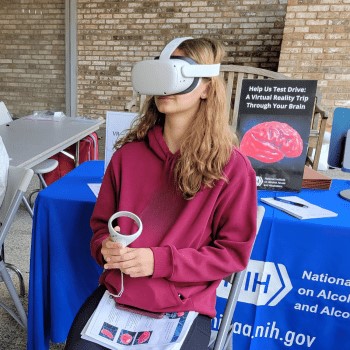 The National Institute on Alcohol Abuse and Alcoholism (NIAAA) recently launched Alcohol and Your Brain, a virtual reality (VR) module to engage and educate young audiences about how alcohol affects the brain. NIAAA created a complementary desktop video version of the VR module to make the Alcohol and Your Brain content even more accessible. Parents and educators can share the video with middle schoolers on any computer or mobile device. NIAAA also created a second video version that provides audio descriptions for users with low or no vision. Both videos provide captions for viewers who are deaf or hard of hearing.
The National Institute on Alcohol Abuse and Alcoholism (NIAAA) recently launched Alcohol and Your Brain, a virtual reality (VR) module to engage and educate young audiences about how alcohol affects the brain. NIAAA created a complementary desktop video version of the VR module to make the Alcohol and Your Brain content even more accessible. Parents and educators can share the video with middle schoolers on any computer or mobile device. NIAAA also created a second video version that provides audio descriptions for users with low or no vision. Both videos provide captions for viewers who are deaf or hard of hearing.
December 2023
Recognize the Power of Your Influence.
 Some family members say, “They’re 18, I can’t tell them what to do anymore.” It is true they’re not little children anymore, however your attitudes and guidelines still matter enormously. We know families play a major role in influencing their college student’s behavior. Remind your young adults that your job as an adult family member is to keep them safe and healthy. Part of that is to provide guidance that will help them get where they want to go in life. When asked, a group of fourth-year college students were ask “What were the most important influences in helping you achieve what you have in college?” The number one answer was “My parents.” Family members take heart: your voice still matters, perhaps more than you realize. Check out the tools for talking with young adults from the College Parents Matter newsletter.
Some family members say, “They’re 18, I can’t tell them what to do anymore.” It is true they’re not little children anymore, however your attitudes and guidelines still matter enormously. We know families play a major role in influencing their college student’s behavior. Remind your young adults that your job as an adult family member is to keep them safe and healthy. Part of that is to provide guidance that will help them get where they want to go in life. When asked, a group of fourth-year college students were ask “What were the most important influences in helping you achieve what you have in college?” The number one answer was “My parents.” Family members take heart: your voice still matters, perhaps more than you realize. Check out the tools for talking with young adults from the College Parents Matter newsletter.
Visit: College Parents Matter | Talk to your student about substance use
November 2023
Teen Gambling

October 2023
Quiz: Proper Drug Disposal
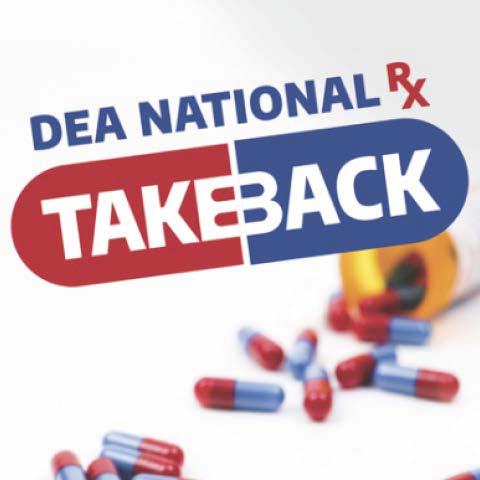 Want a challenge? Help protect your family and community by knowing and sharing the proper way to dispose of unused drugs. The National Drug Enforcement Administration (DEA) offers this challenge to encourage your learning and your involvement in making our homes and communities safer.
Want a challenge? Help protect your family and community by knowing and sharing the proper way to dispose of unused drugs. The National Drug Enforcement Administration (DEA) offers this challenge to encourage your learning and your involvement in making our homes and communities safer.
July 2023
Talk, Share and Listen
 With the end of July, families are preparing for the beginning of the college school year. Have a conservation with your student. Help them be prepared for the decisions they may make regarding parties and their use of alcohol. Share the consequences of Harmful and Underage College Drinking. Some of the topics to include are:
With the end of July, families are preparing for the beginning of the college school year. Have a conservation with your student. Help them be prepared for the decisions they may make regarding parties and their use of alcohol. Share the consequences of Harmful and Underage College Drinking. Some of the topics to include are:
- Death
- Assault
- Sexual Assault
- Academic Problems
- Alcohol Use Disorder
Other consequences include suicide attempts, health problems, injuries, unsafe sexual behavior, and driving under the influence of alcohol, as well as vandalism, damage, and involvement with the police.
For more information, please visit: https://www.collegedrinkingprevention.gov/CollegeAIM
June 2023
A Short Guide to Productive Conversations
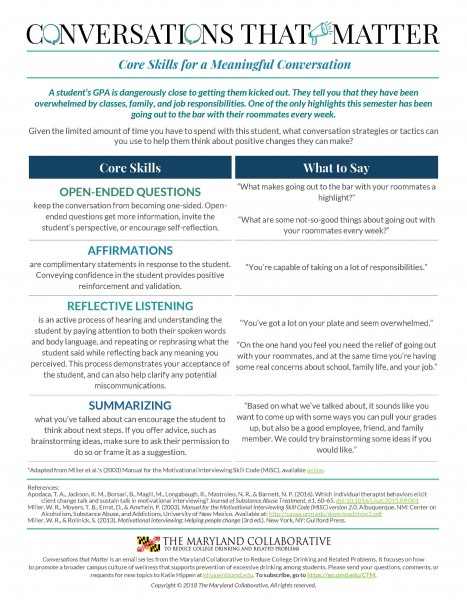 If you have a young college student who is home for the summer or one beginning college this fall, check out the guide to start the conservation regarding your general values about behavior decisions your student may be faced with. The summer quarterly newsletter from the Maryland Collaborative is designed to reduce college drinking and related problems.
If you have a young college student who is home for the summer or one beginning college this fall, check out the guide to start the conservation regarding your general values about behavior decisions your student may be faced with. The summer quarterly newsletter from the Maryland Collaborative is designed to reduce college drinking and related problems.
A few general principles to keep in mind during conversations with your student:
- Pick a calm time and setting to have these discussions.
- Avoid distractions, other people, and situations where you might have to cut the conversation short.
- Focus on listening without judgment when possible.
- As your student continues transitioning into young adulthood, giving them room to share their thoughts and experiences builds trust.
- Ask open-ended questions to gain more insight. Starting questions in a curious way, with words like "what" or "how", will give you richer information than those that lead to one-word answers, such as "do you" or "will you".
A Short Guide to Productive Conservations is available on: Core Skills for a Meaningful Conversation (mailchi.mp)
June 2023
Is Marijuana Addictive?
 As Illinois is experiencing new issues related to the legal use of marijuana, often there is the question: “Is marijuana addictive?” According to information offered on The Partnership to End Addiction, the short answer is “Yes”. Some people will develop Cannabis Use Disorder (CUD), which is the clinical name for marijuana addiction. The website shares research showing the use of marijuana before the age of 18 is worrisome as teens are 4 to 7 times more likely to develop CUD than adults. Marijuana use is identified as the current primary reason young people enter substance use treatment. If there is a teen you are concerned about, it is important to learn more and take action.
As Illinois is experiencing new issues related to the legal use of marijuana, often there is the question: “Is marijuana addictive?” According to information offered on The Partnership to End Addiction, the short answer is “Yes”. Some people will develop Cannabis Use Disorder (CUD), which is the clinical name for marijuana addiction. The website shares research showing the use of marijuana before the age of 18 is worrisome as teens are 4 to 7 times more likely to develop CUD than adults. Marijuana use is identified as the current primary reason young people enter substance use treatment. If there is a teen you are concerned about, it is important to learn more and take action.
For more information, including the signs of Cannabis Use Disorder, check out: Is Marijuana Addictive? - Partnership to End Addiction (drugfree.org).
April 2023
Fact or Fiction? Take the Drug Quiz!
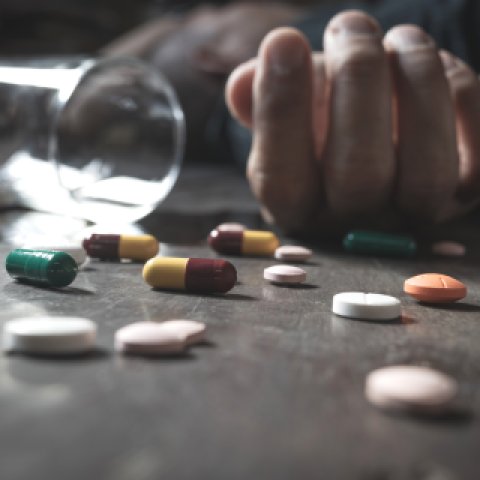 Do you know what percent of teens and adults have a substance use disorder? How about the effects of a heroin overdose? Test your knowledge with Get Smart About Drugs' new Fact or Fiction drug quiz. Get Smart About Drugs (DEA website) also challenges you to the Fentanyl Quiz. Be safe and know the facts!!
Do you know what percent of teens and adults have a substance use disorder? How about the effects of a heroin overdose? Test your knowledge with Get Smart About Drugs' new Fact or Fiction drug quiz. Get Smart About Drugs (DEA website) also challenges you to the Fentanyl Quiz. Be safe and know the facts!!
Fact or Fiction? Take the Drug Quiz! | Get Smart About Drugs
March 2023
NDAFW
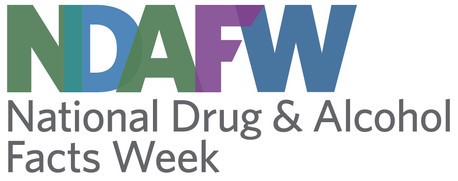 The National Institute on Drug Abuse (NIDA) offers you some challenges during the National Drug and Alcohol Facts Week®. The National Drug & Alcohol IQ Challenge and the Coping with Stress Kahoot! quizzes. Any one of these are great activity options for your class or group or family to help share the science and empower youth to make healthy choices during National Drug and Alcohol Facts Week®, March 20-26, and beyond!
The National Institute on Drug Abuse (NIDA) offers you some challenges during the National Drug and Alcohol Facts Week®. The National Drug & Alcohol IQ Challenge and the Coping with Stress Kahoot! quizzes. Any one of these are great activity options for your class or group or family to help share the science and empower youth to make healthy choices during National Drug and Alcohol Facts Week®, March 20-26, and beyond!
Check out: Play the new NIDA Kahoot! during NDAFW! (govdelivery.com).
February 2023
Opioid Concerns
 When an opioid is prescribed for my child, what should I do? Parents may face this question with situations or ailments for which opioids may be recommended. These may include accidental injury, after oral surgery to remove wisdom teeth, sickle cell disease and other pediatric chronic pain conditions. If your health care provider recommends or prescribes an opioid for your child, there are important questions to ask, risks to be aware of and safety precautions to take. The Partnership to End Addiction provides information to assist caregiver’s decisions. Take a look:
When an opioid is prescribed for my child, what should I do? Parents may face this question with situations or ailments for which opioids may be recommended. These may include accidental injury, after oral surgery to remove wisdom teeth, sickle cell disease and other pediatric chronic pain conditions. If your health care provider recommends or prescribes an opioid for your child, there are important questions to ask, risks to be aware of and safety precautions to take. The Partnership to End Addiction provides information to assist caregiver’s decisions. Take a look:
- What are some common opioid pain relievers?
- Why is the misuse of opioids so dangerous?
- What questions should you ask if an opioid is recommended?
- What if an opioid has been prescribed?
- What are some signs of misuse or dependence?
Keep your child safe. Learn more at: What Parents Should Know When Their Child Is Prescribed Opioids - Partnership to End Addiction (drugfree.org)
January 2023
Planning NDAFW 2023 Event
Join NIDA for National Drug and Alcohol Facts Week® (NDAFW)—to be held March 20-26, 2023—and plan an event or activity to empower the teens and young adults in your community to make informed decisions about alcohol and other drugs. It takes five steps to get started in creating an opportunity for community connection and unified action toward raising awareness of and preventing substance use among teens in communities nationwide.
Step 1: Learn about NDAFW with NIDA as your guide. NIDA offers a host of resources to help you and your planning team make the most of this annual, weeklong health observance that inspires dialogue around the science of drug use and addiction among youth.
Step 2: Plan your NDAFW event using inspiration from NIDA’s many activity ideas. From videos and quizzes to lesson plans and conversation starters, NIDA resources are tailored for teens, parents, and educators to explore and interact.
Step 3: Register your event! It only takes a few minutes to complete and gets your event listed on the NIDA events map online.
Step 4: View NIDA’s Research Topics to find the science on specific substances or other areas of interest. Secure the science with the help of NIDA. View lessons and conversation starters to help further education and conversation.
Step 5: Promote, promote, promote! Whether it’s via email, social media posts, or pitching local news to cover it, you can amplify your community activity or event to increase participation and spread the science.
Keep an eye out for the next email featuring more activity spotlights to help you turn your plans into action. It will include insights on spreading the word about your big event before NDAFW kicks off March 20-26!
Check out: [Please enable JavaScript.]
November 2022
Parents With Addiction
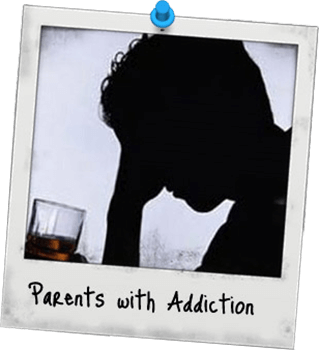 Many teens think they are alone – but they are not. There are many families across the United States where one of the parents is an alcoholic or drug addict. Teens may feel like they are the reason why a parent has an alcohol or drug addiction – but that is not true. Nothing they do caused the parent to drink or do drugs. It is first important to understand the effects the alcohol or drugs will have on a person. By understanding, you will better understand why a parent is acting the way they are.
Many teens think they are alone – but they are not. There are many families across the United States where one of the parents is an alcoholic or drug addict. Teens may feel like they are the reason why a parent has an alcohol or drug addiction – but that is not true. Nothing they do caused the parent to drink or do drugs. It is first important to understand the effects the alcohol or drugs will have on a person. By understanding, you will better understand why a parent is acting the way they are.
To learn more, check out: SafeTeens: Parents with Addiction - How to Deal With it
August 2022
The Adolescent Alcohol Use Impact
 The past 50 years of research supported by the National Institute on Alcohol Abuse and Alcoholism (NIAAA) have resulted in an accumulation of valuable information that addresses the multifaceted problems surrounding underage drinking. Youth use of alcohol remains a persistent social and public health concern in the United States. It is a leading cause of disability and mortality during adolescence. Alcohol use in adolescence has a distinct pattern from adult drinking. Adolescents may have fewer drinking occasions but they consume relatively high levels per event often referred to as binge or heavy episodic drinking. Binge drinking is defined as consuming four or more standard ethanol alcohol consumption units per occasion for females and five plus units for males.
The past 50 years of research supported by the National Institute on Alcohol Abuse and Alcoholism (NIAAA) have resulted in an accumulation of valuable information that addresses the multifaceted problems surrounding underage drinking. Youth use of alcohol remains a persistent social and public health concern in the United States. It is a leading cause of disability and mortality during adolescence. Alcohol use in adolescence has a distinct pattern from adult drinking. Adolescents may have fewer drinking occasions but they consume relatively high levels per event often referred to as binge or heavy episodic drinking. Binge drinking is defined as consuming four or more standard ethanol alcohol consumption units per occasion for females and five plus units for males.
To learn more about the impact of adolescent alcohol use visit: Alcohol and the Adolescent Brain: What We’ve Learned and Where the Data Are Taking Us | Alcohol Research: Current Reviews (nih.gov).
February 2022
Are the Non-addictive Drugs Safe?
- Do all drugs lead to addiction?
- Do all medications have a side effect?
- Is it safe to take more than one over-the-counter medication at a time?
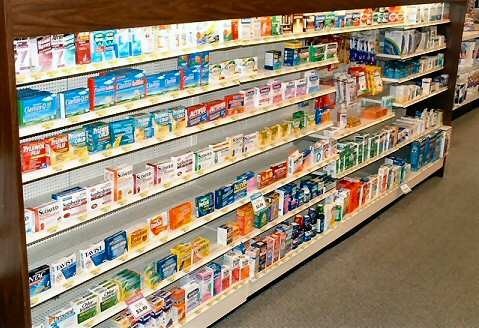 These are all good questions. Understanding the potential for addiction or side effects to any medication, over-the-counter (OTC) or prescribed medication is important. There are myths about the safety of taking OTC medicines since they do not require a prescription. To better understand the risk of abusing OTC or mixing with other medications, either prescription or OTC, visit the National Institute on Drug Abuse website for Teens at: https://teens.drugabuse.gov/blog/post/non-addictive-drugs-are-they-always-safe.
These are all good questions. Understanding the potential for addiction or side effects to any medication, over-the-counter (OTC) or prescribed medication is important. There are myths about the safety of taking OTC medicines since they do not require a prescription. To better understand the risk of abusing OTC or mixing with other medications, either prescription or OTC, visit the National Institute on Drug Abuse website for Teens at: https://teens.drugabuse.gov/blog/post/non-addictive-drugs-are-they-always-safe.
